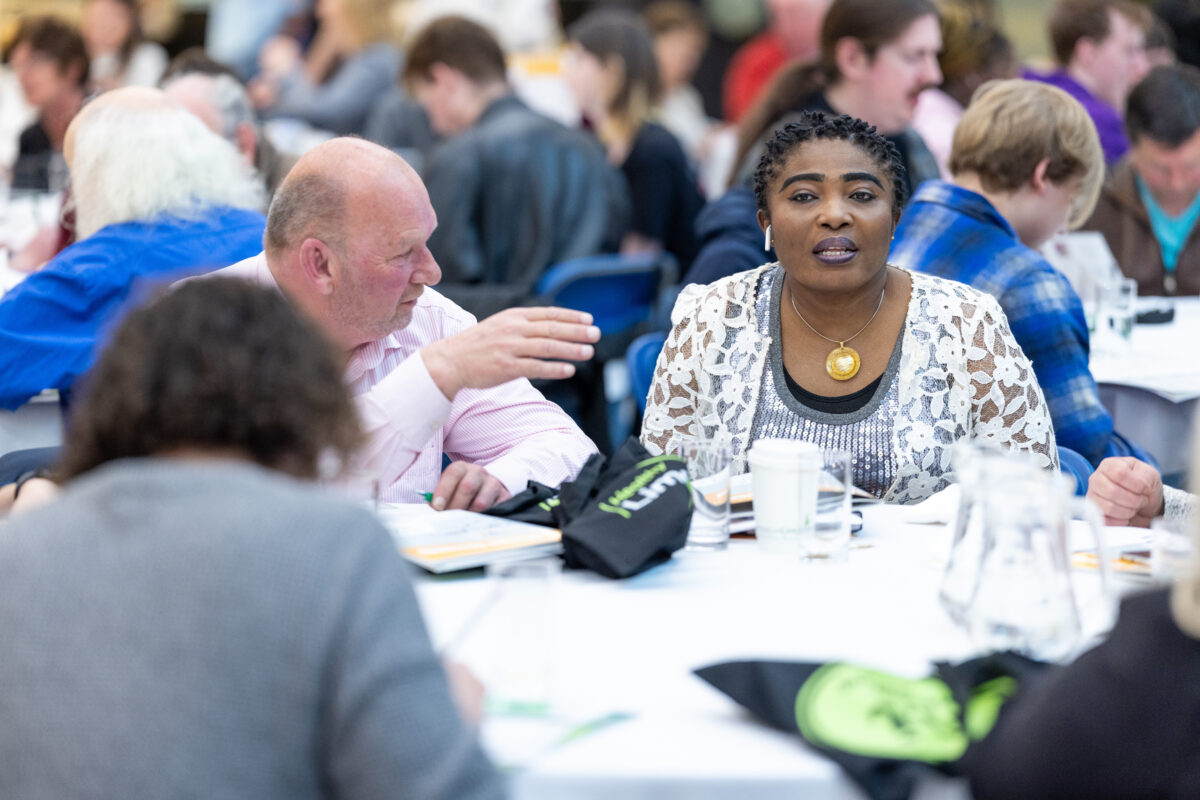The UL Citizens’ Assembly brings together more than 100 community stakeholders and citizens from Limerick city and county, including representation from all six Limerick municipal districts based on county demographics and principles of inclusivity.
In order to ensure that the Assembly is as representative and inclusive as possible, the University partners with Limerick Public Participation Network (a collective of environmental, social inclusion, community and voluntary organisations in the county), Limerick Comhairle na nÓg (the Limerick branch of the Irish Youth Council), Limerick Community Educational Network (a local network of education and training providers), and is supported by Limerick City and County Council
The Assembly is intended to provide a focus on the UN Sustainable Development Goals, community-university engagement, and research impact. UL staff present their project proposals to the Assembly, who then vote to determine the top three projects. Each successful project receives a €10,000 award.
Assembly members are asked to look for a smart project – it doesn’t have to be really complicated – but it should:
- Be focused on one or more of the UN Sustainable Development Goals (SGDs)
- Include a clear plan for how the project will make an impact in Limerick
- Provide details about how the engagement envisaged for the plan will continue through the life- time of the project.
The Assembly is arranged in a ‘world café’ style, leaving space in the schedule for participants to share their thoughts about the project presentations before casting their vote.
The rationale for creating the event was threefold: to concretise the relations between the university and the region, by demonstrating real, meaningful and impactful engagement between the university and its neighbours; to provide a safe, respectful space for consideration of UN SDGs and strategies to advance them; and to provide UL academics an opportunity to develop their engagement and communication skills.
Professor Maura Adshead, Head of Community Engagement UL said: “The event itself is quite informal. Project presentations last no longer than 10 minutes. No more than three presentations are given together and the breaks in between the presentations ensure that Assembly members have enough time to discuss the projects and complete their scoring.
“A significant element in this initiative is the opportunity that it provides for UL faculty to develop their public engagement skills. Many are taking their first steps towards a more engaged form of scholarship, and we are keen to encourage and support them in this endeavour.”
The short-listing of projects is carried out by an expert panel comprising of five representatives from UL and five external panel members reflecting public, private and community sectors and relevant experience in public engagement and educational outreach.
The panel is encouraged to make comments on any elements of the applications and to include commentary on what is good about the proposal as well as that which might be improved. We want to encourage our faculty to engage more and encourage the panel to offer suggestions and/or ideas for how they might develop their project, or their engagement.
Project proposals are drawn from across the University, ranging from sustainable energy, mitigating microplastics, biological sciences, business ethics, and social singing as a pathway to health and well-being, to name but a few. This diversity was reflected in the three winning projects in 2024:
Sustainable Energy Generation through Citizen Movement
This project outlines the design and deployment of a Piezoelectric (PZT) Energy Harvesting Tile Prototype, leveraging the kinetic energy of pedestrian movement and possibly even rainfall to generate electricity – the so called ‘Irish solar panel’!
Additionally, integrating colourful LEDs into the tiles will enhance engagement, making it an interactive and visually appealing urban feature. Working with Limerick City and County Council the team will engage a number of stakeholder groups such as schoolchildren, the elderly and the homeless population who would benefit from free electricity access and engaged movement initiatives.
Addressing – SDG 3: Good health and wellbeing; SDG 7: Affordable and clean energy
UL Lead – Associate Professor Sarah Guerin, Department of Physics
Partner – Limerick City and County Council
The Food Finder: Mapping Limerick’s Food Environment
The Food Finder is a co-designed mapping project to provide translational knowledge of Limerick’s food environment that is required to inform strategies addressing food poverty.
It is a visual representation of our local food system. Where our supermarkets, small grocers, food banks, community cafes etc are located.
The Food Finder will investigate disparities in accessing healthy food, for example, the influence of the built environment/ neighbourhood characteristics (e.g., the location and offerings of neighbourhood grocery stores, food choice, cost, access, and suitability of transport) on health outcomes in low-income neighbourhoods to identify issues relating to food poverty.
Addressing – SGD 1: No poverty; SDG 2: Zero hunger
UL Lead – Associate Professor Anne Griffin, School of Allied Health
Partner – Limerick Food Partnership
Which Candidate Community Collaborations
Using the already well-established Irish voting advice application whichcandidate.ie, this project will develop online voter information tools and accompanying resources for use in educational settings and with community groups.
Working with established networks of schools, youth and community organisations and groups, the team will co-design online content in an intuitive and engaging way to navigate the Irish political landscape and electoral system by building on an already existing and the widely used website and creating new online tools that specifically cater for educational settings and citizen engagement.
Addressing – SGD 16: Peace, Justice and Strong Institutions
UL Lead – Associate Professor Rory Costello, Department of Politics & Public Administration
Partners – CWELL; Limerick Public Participation Network
Check out UL Citizen Assembly for more details.
.
In the picture: Members of UL Citizen Assembly deliberating on research project presentations.










